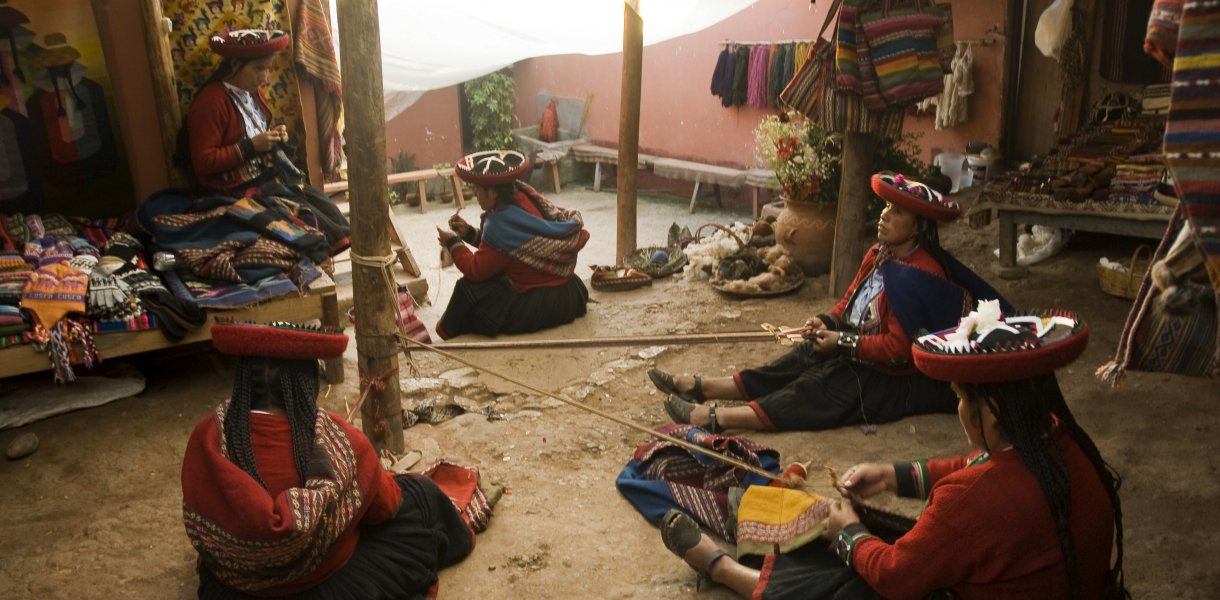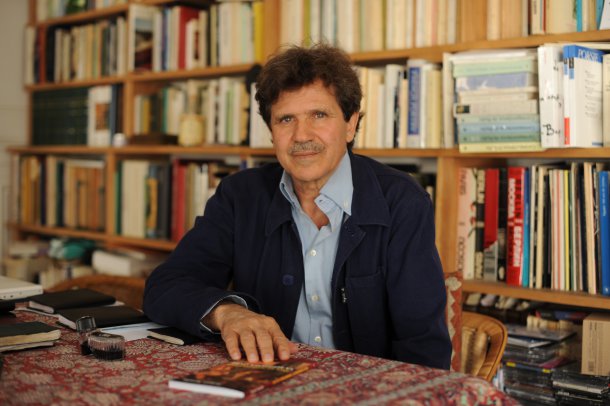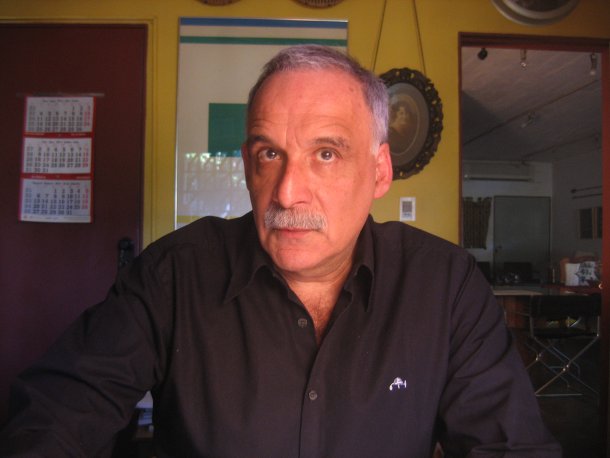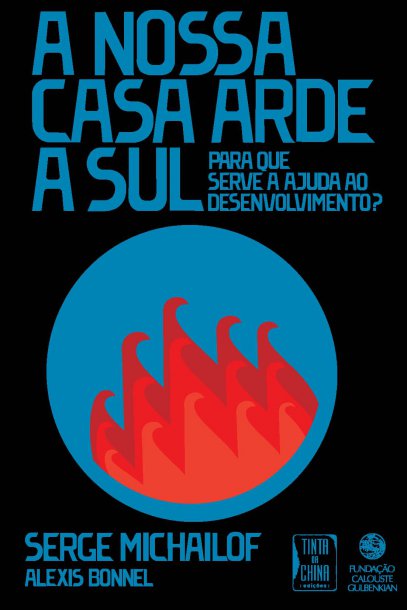Next Future LECTURES
Simultaneous translation and Transmissão online
8 Sep 2012 - 15:00 – 18:00
Aud. 3 of Calouste Gulbenkian Foundation
Free admission
Ticio Escobar, one of South America’s most respected intellectuals, and Abdelwahab Meddeb, one of the first writers to take the Arab Spring as his subject, are the speakers invited by Next Future for this instalment of the lecture series, designed to give a platform to thinkers primarily from South America, Africa and Europe. Curator, teacher and art critic, Ticio Escobar (Asunción, 1947) was until a few months ago Paraguay’s Minister of Culture and will speak to us about the future of indigenous folk art in the context of globalization and the ability of traditional cultures to survive in the contemporary world. The Franco-Tunisian essayist, poet and political commentator Abdelwahab Meddeb (Tunis, 1946), a fierce critic of Islamic fundamentalism, was one of the first writers to take the Arab Spring as his subject: “Tunis Spring – the metamorphosis of History” (2011) is also his latest work. He will use his lecture to talk to us about the future prospects for freedom, considering the conflict between secularism and Islamism.

Moderator: António Pinto Ribeiro
15:00 - After the "Tunisian Spring": the future of freedom at the dawn of the conflict between secularists and Islamists, by Abdelwahab Meddeb
«It is not certain that the fall of a dictatorship leads directly to the formation of a democracy. There is, in fact, the danger that one of these regimes might pass to another; there is the danger that a corrupt mafia-style regime might cede to one that imposes rules, habits and costumes in the establishment of an Islamic totalitarianism. This is the current situation in Arab countries that experienced the events of 2011 (namely Egypt and Tunisia): we shall be facing the passage of spring into autumn…».

ABDELWAHAB MEDDEB (Tunis, 1946) He is poet, novelist, translator, essayist and the editor of the journal Dédale. He was the curator of the 2005 exhibition “West by East” for the Centre of Contemporary Culture in Barcelona, which brought together ancient and contemporary artworks relating to Western society from the Arab world. He is the author of twenty books and is Professor of Comparative Literature at the University of Paris X-Nanterre. He will read from his novel “White Traverses of the Past”, in French with English translations. He has lived in Paris since 1968.
16:30 - Culture and Popular Art: Beyond Memory, by Ticio Escobar
Partindo da sugestão deste título, a minha conferência abordará o tema das hipóteses de sobrevivência da arte popular de origem indígena no contexto da globalização. O encontro intercultural, realizado no contexto colonial, gerou casos devastadores de genocídio e de etnocídio, nas culturas tradicionais. Este procedimento gerou também métodos simbólicos e imaginários de reajuste transcultural e de criação de novos atos artísticos. Em geral, estas culturas são encaradas no ponto de vista do seu passado e no ponto de vista da sobrevivência da tradição e da memória, mas a promoção da cultura ‘tradicional’ exige a consolidação dos seus processos contemporâneos e a procura de uma perspetiva de futuro.
A questão é saber se a arte proveniente destas culturas terá a capacidade de sobreviver e crescer em condições opostas àquelas que lhes deram origem. É um assunto complicado porque não só envolve o conceito geral de ‘cultura’ mas especificamente o de ‘arte’. Esta questão coloca-se também num contexto de uma tradição que discute o tema artístico de diferentes sistemas de uma maneira fundamentalmente ocidental e num momento em que o papel da arte universal emerge de forma suspeita. Grande parte do debate contemporâneo acerca da cultura prevê a reconsideração de formatos que, na sua versão essencialista, perderam a sua validade. Confrontados com a contingência do acaso de histórias diferentes, podem revelar-se novas pistas sobre o destino das culturas populares. A conferência abordará estas questões, considerando o caso específico das culturas tradicionais da América Latina e, especificamente, do Paraguai

TICIO ESCOBAR (Asunción, 1947) Curator, professor, art critic, and cultural advocate he authored the National Law of Culture of Paraguay. Director of the Museo de Arte Indígena, Centro de Artes Visuales (Asunción) and former President of the “National Section” of Paraguay of at the International Association of Art Critics, he was Minister of Culture of Paraguay from 2008 to 2012. Since 1984 he has been awarded several international distinctions regarding his work. Most recently, in October 2011, the International Association of Art Critics (AICA) recognized his extraordinary contributions in the field of international critique. He has published more than ten books on indigenous, popular and contemporary art, including “Una interpretación de las artes visuales en el Paraguay” (in two volumes, 1982 and 1984), “El mito del arte y el mito del pueblo” (Asunción, 1986, Santiago de Chile, 2008), “Misión: Etnocidio” (Asunción, 1989), “La belleza de los otros” (1993), “La maldición de Nemur” (Asunción, 1999, Universidades de Murcia e Pittsburgh, 2008), “El arte fuera de sí” (Asunción, 2004, Valencia, 2010) and “La mínima distancia” (La Habana, 2010). His periodicals include “La invención de la distancia” (AICA).
17:30 - Book launch A nossa casa arde a sul: para que serve a ajuda ao Desenvolvimento? (Our house is burning southwards: what’s the point of Development Aid?), by Serge Michailof (published by Tinta-da-China, in partnership with PGPF and PGAD), presented by M.ª Hermínia Cabral (PGAD director)

Development aid is a burning issue. Voices have been raised for many years, asking what good aid for Africa can do. Every year, thousands of millions of dollars are poured into the continent, without any beneficial effect save for the enrichment of the local governing class… In selfish times when public funds are scarce, these voices are sure to find favour. Our House is Burning Southwards is a meticulous journey, country by country, taking in the complexities and contradictions. A journey that refuses to be overshadowed by tragedy, choosing instead to catalogue the successes, the energy and strength emerging from generational change. A journey which never condemns without first explaining. And which, after explaining, always has a proposal to make. No-one is more outspoken in denouncing the corruption rife in the two Congos, the plundering of Madagascar and Cameroon, the scandal of Gabon, countries where the land and the presidents are so rich, and the population so poor, bereft and lacking even adequate hospitals. But is this a reason for giving up on development aid? Serge Michailof and Alexis Bonnel explain the reasons why international aid is not only desirable, but actually essential, and that the collapse of countries in the south will not leave Western societies unscathed.
